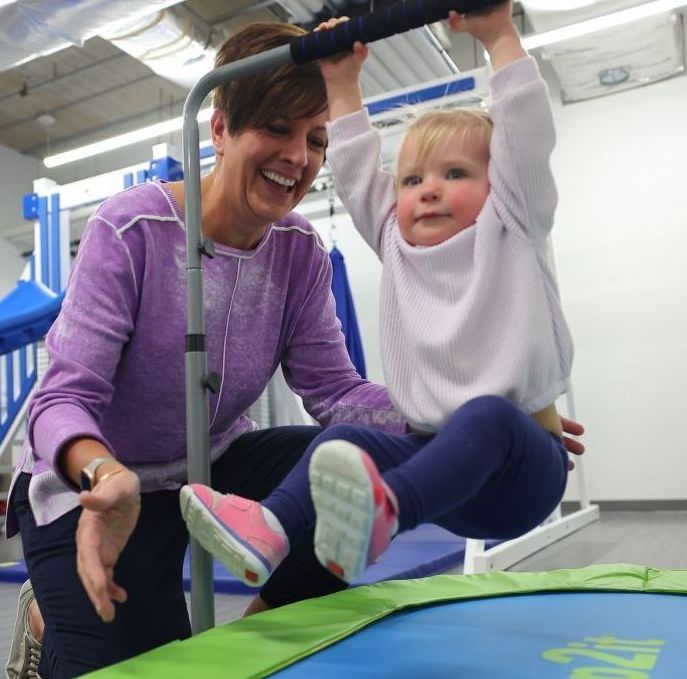Pediatric Physical Therapy

Pediatric Physical Therapy - Center for Pediatric Therapies, located at the Waverly Health Center, Nashua and Parkersburg Clinics
At Taylor Physical Therapy, we have physical therapists that create specialized treatment programs for each individual child. We provide a fun atmosphere to learn and grow while making gains toward their motor milestones. Our pediatric physical therapists help children develop muscle strength while coordinating those muscles to sit, stand, balance, walk, reach and play. We promote independence along with increasing participation in their everyday environment. We believe enhancing learning opportunities can lead to increased ease with challenges during routine activities. Our pediatric physical therapists focus on helping children experience the world around them.
Our physical therapists can provide treatment for:
| Gross motor skills and mobility deficits | General orthopedic injuries and surgeries |
| Limitations in range of motion, strength, and endurance | Spinal Bifida |
| Balance and coordination difficulties | Post-concussion syndrome |
| Toe walking | Sprains and strains |
| Genetic disorders (ex: Down syndrome, muscular dystrophy) | Headaches |
| Cerebral palsy | Sports-related pain or injuries |
| Brain trauma, injuries or seizure disorders | Post-fracture care |
| Developmental delays | Low back pain |
| Autism spectrum disorders | Poor posture |
| Hypertonia | Sensory processing disorder |
| Torticollis and plagiocephaly |

Indicators for Pediatric Physical Therapy
- Head is tilted or rotated to one side or has a side preference at any age
- Has difficulty meeting gross motor milestones
- Sitting on their own by 6-8 months without significant support
- Crawling by 9-10 months
- Standing independently at 12 months
- Cruising at a surface at 12 months
- Walking by 16-18 months
- Running by 2 years old
- Jumping off the floor or off the bottom step by 3 years old
- Throw, catch, and kick a ball by 3 years old
- Walking up stairs alternating steps by 4 years old
- "W' sitting 50% of the time or greater
- Abnormal muscle tone
- Poor posture in sitting or standing
- Stiff joint or hypermobile joints
- Toe walking as primary gait pattern
- Excessive clumsiness or frequent falling
- Pain or swelling in muscles or joints
- Not keeping up with other kids their age at home or at school

